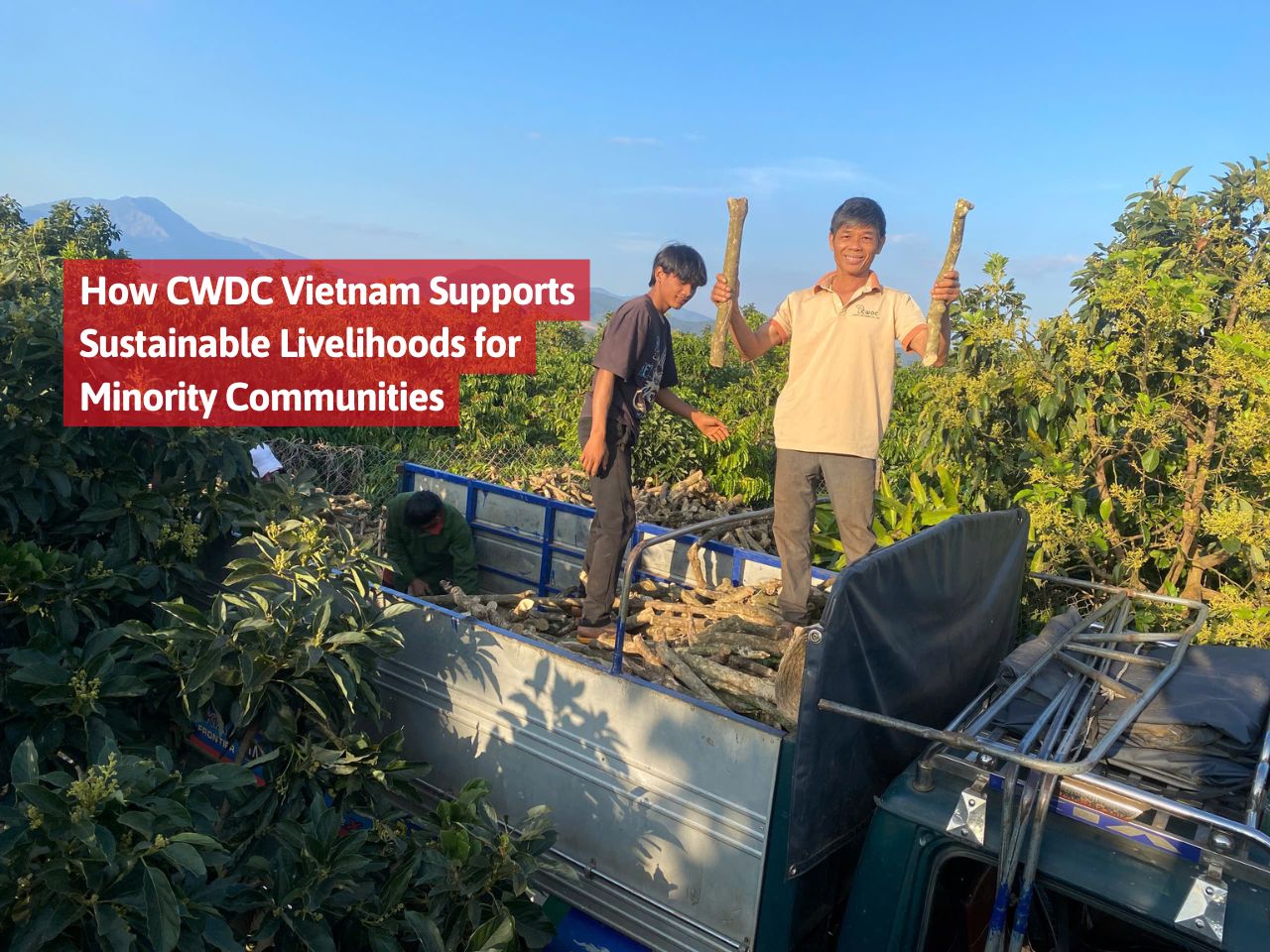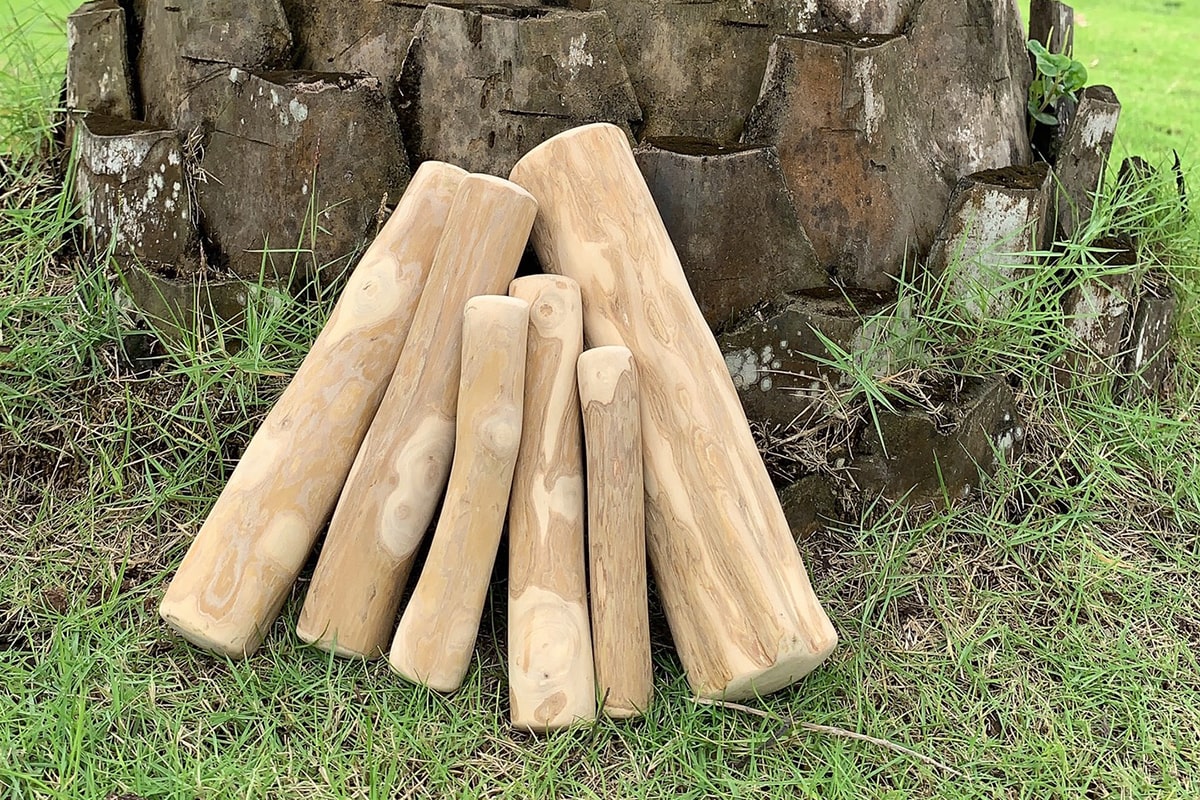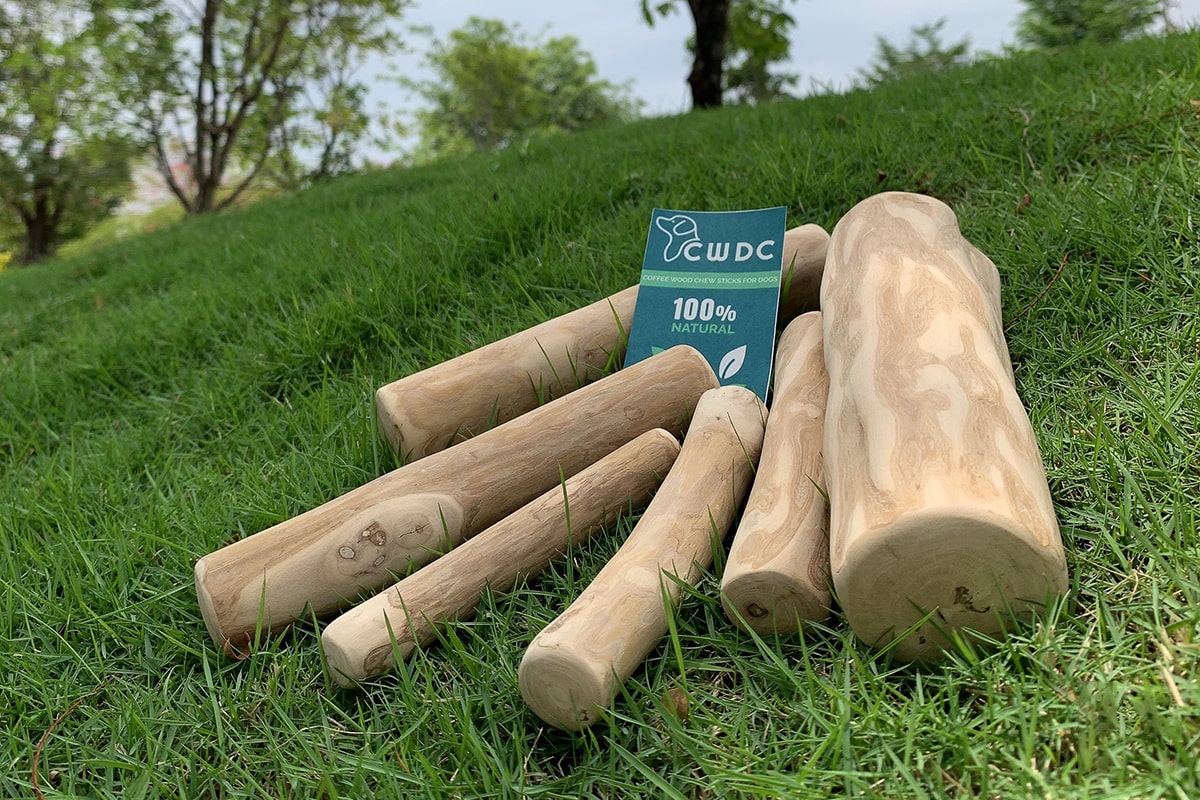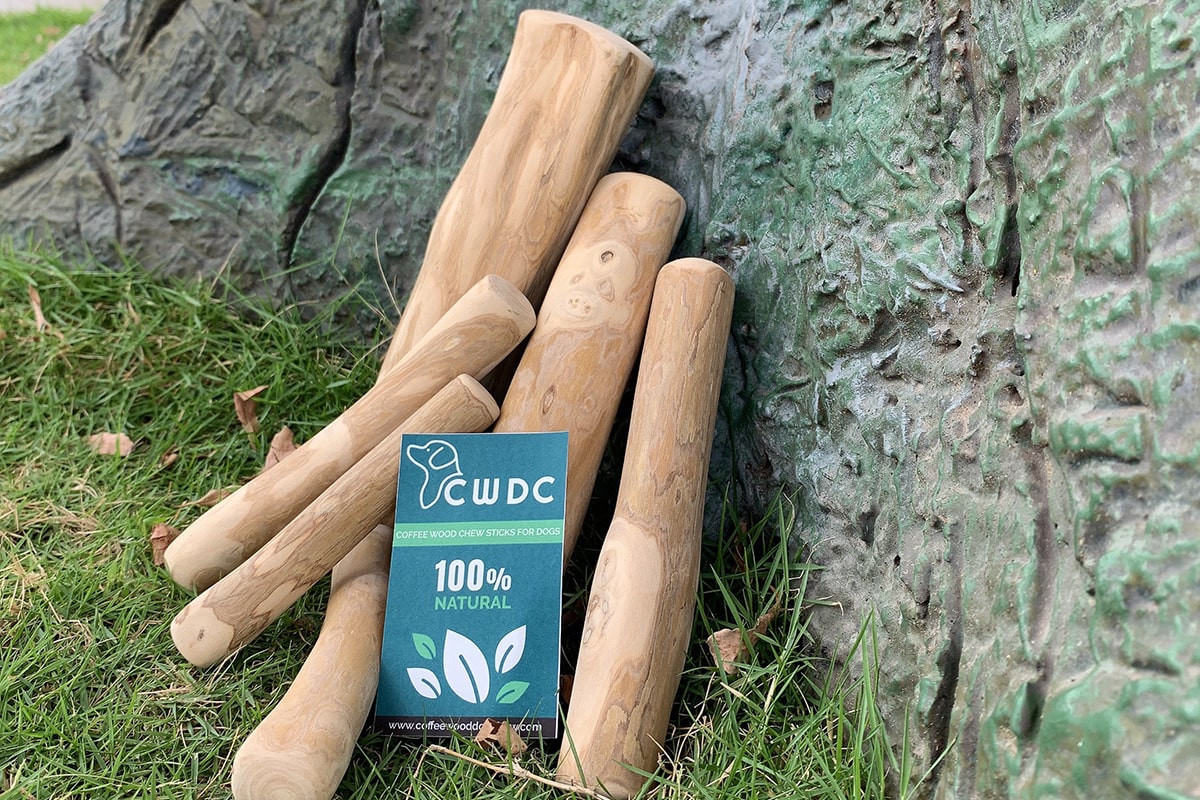In the rugged, agriculturally rich Central Highlands of Vietnam, many ethnic minority communities rely heavily on seasonal farming for their livelihoods. While coffee cultivation is central to their way of life, income can be inconsistent, especially when global coffee prices fluctuate or harvest yields vary.
Recognizing these challenges, CWDC Vietnam has developed a business model that not only meets its supply needs for coffee wood dog chews but also actively supports the long-term economic well-being of these rural communities. By creating stable income opportunities, offering skill development, and ensuring fair trade practices, CWDC Vietnam is helping ethnic minority families move toward more sustainable, secure livelihoods.
1. Turning Agricultural Waste into Economic Opportunity
Traditionally, once coffee trees reached the end of their productive cycle, typically after 20 to 25 years, they were simply uprooted and discarded or burned as firewood. However, CWDC Vietnam saw economic value in this otherwise overlooked byproduct. By purchasing aged coffee wood directly from farmers, our company created a new revenue stream for households that previously earned nothing from discarded trees. This innovation turns waste into income, immediately improving financial stability for farming families while supporting CWDC Vietnam’s need for high-quality raw materials.
2. Direct Sourcing that Benefits Local Farmers
CWDC Vietnam avoids working through intermediaries or traders, opting instead to establish direct relationships with coffee farmers, many of whom are members of ethnic minority groups such as the Ede, Jarai, Bahnar, and Mnong.
By sourcing coffee wood straight from the farm gate, CWDC Vietnam ensures that farmers receive fair prices and timely payments, reducing financial uncertainty. This direct trade approach not only builds trust but also encourages farmers to manage their land responsibly and maintain a consistent replanting cycle, essential for long-term sustainability.
3. Job Creation Beyond the Farm
CWDC Vietnam’s support doesn’t stop at raw material purchase. Our company actively creates non-farming job opportunities in rural areas by employing local workers in processing, quality control, drying, shaping, and packaging of coffee wood chews.
This is particularly important for women and young adults, who often have limited employment options outside of seasonal agriculture. These jobs are designed to be stable and safe, offering on-the-job training, a predictable income, and proximity to workers’ homes, factors that reduce migration pressure and help maintain family and community cohesion.
4. Empowering Women in the Workforce
In many ethnic minority communities, women have historically been underrepresented in income-generating activities outside the home. CWDC Vietnam actively hires women for roles in sorting, finishing, and packaging. These positions give women greater economic independence, allowing them to contribute more directly to household finances and improve their families’ quality of life. In turn, this empowerment leads to broader social impacts, better education for children, improved nutrition, and stronger voices for women in community decisions.
5. Skill Development and Long-Term Capacity Building
CWDC Vietnam invests in training programs that transfer knowledge and build capacity within the community. From safe machinery handling to quality control and sustainable harvesting methods, workers gain valuable skills that improve their employability. In some cases, experienced workers are promoted to supervisory or logistics roles. This internal mobility fosters a culture of pride, ownership, and ambition within the local workforce, further strengthening the company’s operations while elevating community potential.
6. Encouraging Environmental Stewardship
Sustainable livelihoods are closely tied to sustainable land use. CWDC Vietnam encourages farmers to remove only aged, unproductive trees and to replant coffee fields responsibly, ensuring a continuous and renewable source of wood. By linking income to responsible harvesting practices, CWDC Vietnam aligns community livelihood goals with environmental sustainability. This approach prevents deforestation and soil degradation while securing long-term access to raw materials for both CWDC Vietnam and future generations of farmers.
7. Community Investment and Local Partnerships
CWDC Vietnam frequently collaborates with local cooperatives, village leaders, and agricultural officials to identify areas with the most need and potential. Through these partnerships, our company is able to reach more remote households and provide support where it will have the greatest impact. In certain areas, CWDC Vietnam contributes to community development projects, such as improving processing facilities, sponsoring educational materials, or providing basic equipment that makes harvesting and coffee wood handling safer and more efficient.
8. Resilience in the Face of Economic Volatility
By diversifying income sources for coffee-growing households, CWDC Vietnam helps reduce the vulnerability of minority communities to shocks such as falling coffee prices, crop failure, or climate-related disruptions. The added income from selling coffee wood or working in processing centers allows families to better withstand hardship, invest in farm inputs, or access healthcare and education, key factors in breaking the cycle of poverty.
9. A Long-Term, Inclusive Vision
CWDC Vietnam’s approach is not built around short-term gains. Our company views ethnic minority communities not just as raw material providers, but as strategic partners in a long-term, inclusive value chain. By ensuring that these communities benefit meaningfully from the success of the coffee wood dog chew industry, CWDC Vietnam fosters loyalty, continuity, and mutual growth. This inclusive vision supports business sustainability, regional development, and global consumer demand for ethically sourced products.
Conclusion
CWDC Vietnam’s work in the Central Highlands is a strong example of how a company can build its business model around social responsibility and sustainability, while still remaining competitive in the global pet product market. By turning aged coffee wood into opportunity, CWDC Vietnam empowers ethnic minority communities through fair trade, local employment, skill development, and environmental stewardship. The result is not just a reliable supply chain, but a ripple effect of positive change that strengthens families, communities, and ecosystems alike.
Related Posts:
- Enhancing Economic Opportunities for Ethnic Minority Workers in the Coffee Wood Industry
- How CWDC Vietnam Navigates Supply Chain Challenges in the Coffee Wood Sector
- The Economic Value of Aged Coffee Wood and Its Rising Demand
- The Symbiotic Relationship Between CWDC Vietnam and the Ethnic Communities of the Central Highlands
- Origin and Development of Coffee Wood Dog Chews in the Market
- How CWDC Vietnam Competes with Other Players in the Coffee Wood Dog Chew Industry









